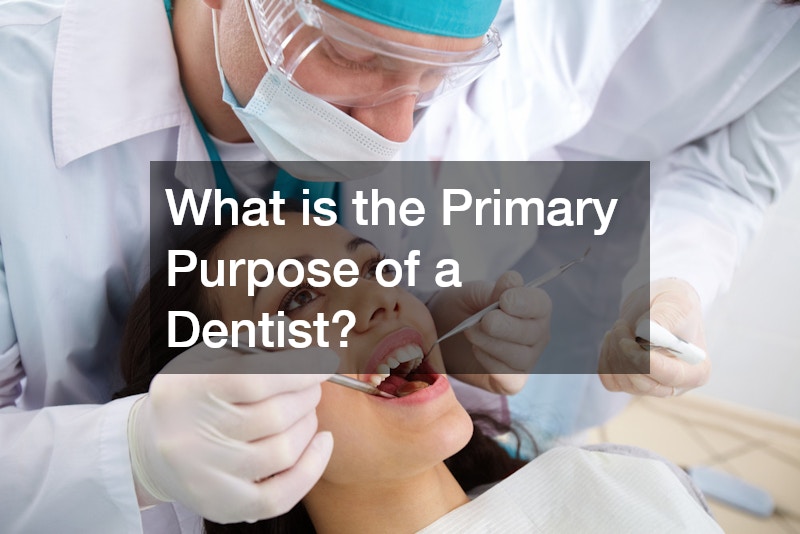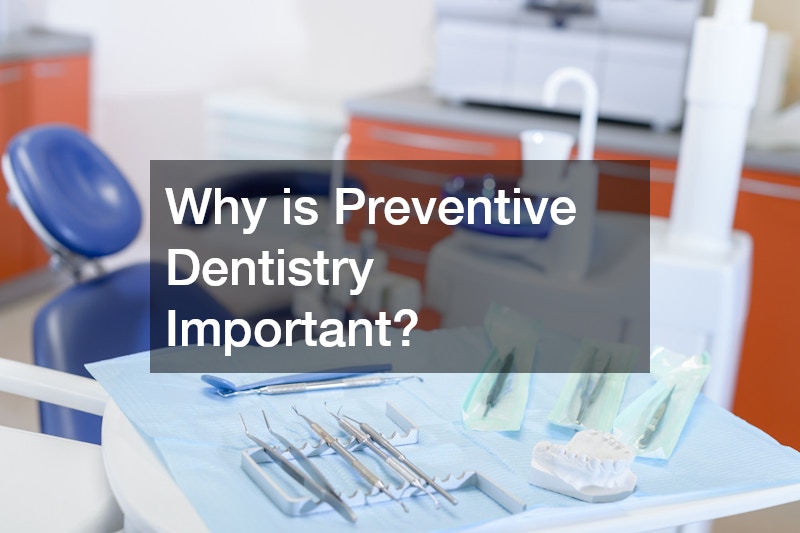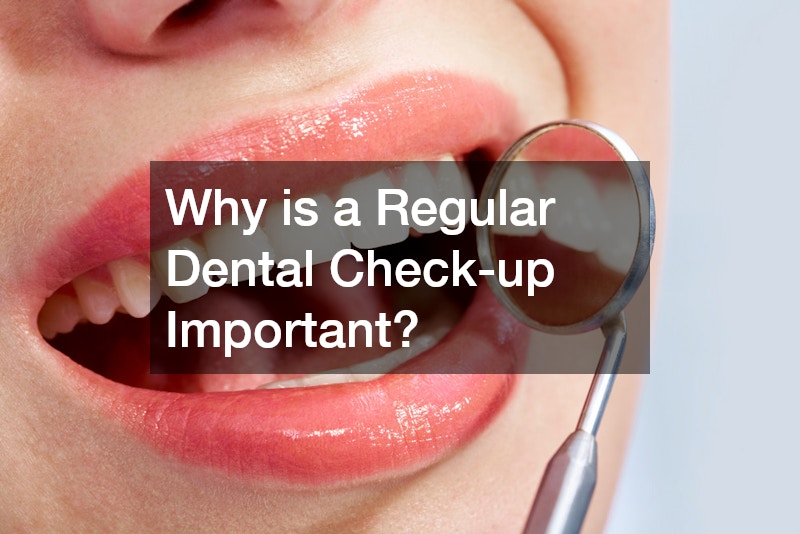Understanding the Purpose of a Dentist
Dentists are healthcare professionals who play a critical role in maintaining the oral health of individuals within a society. Their responsibilities extend beyond just cleaning teeth, as they are deeply involved in the prevention, diagnosis, and treatment of dental conditions. This article will explore the purpose of a dentist in various facets, demonstrating their importance not only to dental health but to overall well-being. By focusing on aspects such as preventive care, managing dental anxiety, and employing advanced technologies, we uncover how dentists contribute profoundly to the quality of life. As key players in healthcare, dentists are essential for ensuring that the populace maintains a robust and healthy oral environment.
In addition to treating dental concerns, dentists often serve as the first line of defense in identifying signs of systemic health issues. Conditions like diabetes, heart disease, and even certain cancers can first manifest in the mouth, making routine dental visits a crucial component of early detection and intervention. Dentists also educate patients about proper oral hygiene practices and diet, helping to establish long-term habits that protect overall health. Their ability to guide, support, and intervene before problems escalate positions them as invaluable healthcare allies. This article will outline the full scope of their role and the long-term benefits of their care.
What is the Primary Purpose of a Dentist?

The primary purpose of a dentist is to ensure optimal oral health through preventive care, which includes regular check-ups and cleaning. Dentists diagnose and treat dental issues such as cavities, gum disease, and tooth decay, which are crucial in preventing more severe health complications. Education also plays a significant role as dentists advise patients on effective oral hygiene practices to maintain healthy teeth and gums.
Additionally, the purpose of a dentist extends to the restoration of teeth, which involves procedures like fillings and crowns. These treatments restore function and appearance, allowing people to eat, speak, and smile properly. Moreover, restorative dentistry is vital for preventing further oral health issues by addressing existing problems promptly.
Lastly, dentists are fundamental in the early detection of systemic conditions that manifest orally, such as diabetes or osteoporosis. By identifying abnormalities during dental exams, dentists contribute to early intervention and management of these conditions. Thus, the dentist acts as a guardian of both oral and overall health.
How Do Dentists Contribute to Overall Health?
Dentists contribute to overall health by offering tooth implants, which are crucial for patients who have lost teeth. These implants not only enhance the aesthetic appearance but also improve the functionality of the mouth, aiding in proper chewing and speech. The purpose of a dentist in providing these solutions is to improve the quality of life for individuals.
Through routine dental check-ups, dentists help in identifying early signs of oral health problems before they escalate into more severe conditions. By treating problems like cavities and gum disease early, dentists prevent further complications that could affect the patient’s overall health, such as infections or tooth loss. The purpose of a dentist extends to preserving the natural structure and function of teeth.
Moreover, dentists provide vital advice on diet and oral hygiene, which indirectly influences general well-being. They emphasize the importance of reducing sugar intake and encourage practices that prevent dental emergencies, thus impacting nutritional intake and overall health. Therefore, the comprehensive care provided by dentists goes beyond just oral health, influencing general wellness.
What Educational Path Do Dentists Follow?
The pathway to becoming a dentist involves extensive education and training, reflecting the depth of knowledge required in this field. Initially, aspiring dentists must earn an undergraduate degree with a focus on science courses. Following this, they must attend an accredited dental school for four years, where they receive education in both the theoretical and practical aspects of dental care.
During their education, students learn about various procedures, including teeth whitening and oral surgeries, enabling them to address an array of dental concerns comprehensively. The curriculum is designed to provide proficiency in diagnosing and treating dental conditions, ensuring that the purpose of a dentist is met effectively. Dentists must pass rigorous examinations before obtaining their license to practice.
Continuing education is crucial as it allows dentists to stay abreast of the latest advancements in dental technology and treatments. By keeping updated with current practices, dentists can offer the highest standard of care, maintaining their pivotal role in healthcare. This ongoing learning is integral to fulfilling the purpose of a dentist as a key contributor to public health.
Why is Preventive Dentistry Important?

Preventive dentistry is critical because it focuses on avoiding dental emergencies through regular maintenance and early detection. Regular check-ups enable dentists to catch potential issues early, preventing their escalation into more serious conditions. This approach fulfills the purpose of a dentist by ensuring long-term oral health and reducing the incidence of complex procedures.
Preventive measures such as cleanings, fluoride treatments, and sealants are essential in safeguarding against tooth decay and gum disease. By emphasizing these practices, dentists help maintain the structural integrity of teeth and gums. Consequently, patients enjoy improved oral health and a reduction in associated health complications.
Furthermore, preventive dentistry involves educating patients about effective oral hygiene techniques and the importance of a balanced diet. This knowledge empowers individuals to take control of their dental health, reinforcing the purpose of a dentist in promoting self-care. Ultimately, preventive dentistry is a cornerstone of a proactive approach to health.
How Do Dentists Manage Dental Anxiety?
Managing dental anxiety is a significant aspect of a dentist’s role, as many patients experience fear or discomfort. Dentists employ various techniques to ease this anxiety, such as creating a calming atmosphere and offering reassurance throughout procedures. The purpose of a dentist in this regard is to make dental visits as anxiety-free as possible, enabling patients to receive necessary care.
To accommodate nervous patients, dentists might offer sedation options like nitrous oxide or oral sedatives. These options help patients relax and ensure that procedures are conducted smoothly and efficiently. As a result, both patient comfort and successful treatment outcomes are prioritized.
Additionally, effective communication is imperative in managing dental anxiety. Dentists take time to explain procedures clearly and answer any questions patients might have. This transparency builds trust and reinforces the important purpose of a dentist in providing compassionate and effective care.
What Technologies Do Dentists Use?
Dentists utilize a wide array of technologies to enhance the diagnosis and treatment of dental conditions, thus embodying the purpose of a dentist as a modern healthcare provider. Orthodontic dentistry, for example, often involves digital imaging to accurately plan and monitor treatments like braces and aligners. This use of technology ensures precise and efficient outcomes.
Another vital technology is the use of digital X-rays, which provide clearer images with less radiation exposure compared to traditional X-rays. These images allow dentists to detect issues such as cavities, bone loss, or impacted teeth early, facilitating prompt and effective treatment. Such innovations are crucial in delivering high-quality dental care.
Furthermore, advancements in laser technology have revolutionized procedures like cavity removal and gum reshaping, making them less invasive and more comfortable for patients. By integrating these advanced tools, dentists can operate at the forefront of dental care, continuing to fulfill their purpose by providing efficient and state-of-the-art treatments.
In What Ways Do Dentists Support Children?

Dentists play a pivotal role in pediatric dentistry, offering specialized care tailored to the unique needs of children. They emphasize preventive care, teaching young patients the importance of oral hygiene and providing routine exams and cleanings. This approach fosters healthy habits early on, aligning with the purpose of a dentist.
Restorative dentistry for children may include treatments such as sealants and fillings to prevent and treat cavities. These procedures ensure that primary teeth remain healthy until they naturally fall out, preventing future orthodontic issues. The purpose of a dentist here is to maintain dental health during crucial developmental stages.
Additionally, dentists support children through education and by creating a welcoming environment. Pediatric dentists are trained to deal with children’s behaviors and can cultivate a positive experience, reducing fear and anxiety regarding dental visits. Such holistic care illustrates the comprehensive purpose of a dentist in nurturing a lifetime of good oral health.
How Do Dentists Address Cosmetic Dental Needs?
Cosmetic dentistry is an essential aspect of dental practice that focuses on improving the appearance of a person’s teeth and smile. Dentists address cosmetic needs with procedures such as teeth whitening, veneers, and bonding. These treatments not only enhance aesthetics but can also boost confidence and emotional well-being.
The purpose of a dentist in cosmetic dentistry involves tailoring solutions to meet individual patient desires, considering factors like facial structure and personal preferences. Dentists use advanced techniques and materials to ensure results are both functional and natural-looking. This commitment to personalized care underscores their role in enhancing overall life quality.
In addition to improving appearance, cosmetic procedures can also have functional benefits. Aligning teeth correctly, for example, can improve bite and speech, whereas veneers protect enamel from erosion. Consequently, cosmetic dentistry bridges the gap between form and function, fulfilling the multifaceted purpose of a dentist.
What is the Role of a Dentist in Geriatric Care?
The role of a dentist extends to geriatric care, focusing on the unique oral health challenges faced by older adults. Dentists address issues such as tooth loss, gum disease, and dry mouth, which are prevalent among elderly populations. The purpose of a dentist in this demographic is to promote healthy aging by maintaining oral function and comfort.
Dentures and other prosthetics play a vital part in restoring the dental function of older patients. These aids help improve chewing efficiency and speech, significantly impacting nutritional intake and quality of life. Providing such solutions ensures that the purpose of a dentist aligns with active and healthy aging.
Preventive care remains just as important, with routine check-ups identifying conditions like oral cancer early. Dentists also offer guidance on managing medications that might affect oral health, further enriching their purpose of ensuring holistic well-being for seniors. This comprehensive care is crucial in maintaining the oral health of aging populations.
Why is a Regular Dental Check-up Important?

Regular dental check-ups are the cornerstone of effective dental care, preventing diseases and detecting problems early. These visits help in maintaining oral hygiene through professional cleanings and screenings for potential issues like cavities or gum disease. The purpose of a dentist in these check-ups is aptly demonstrated by the prevention of extensive treatments and associated costs.
During check-ups, dentists evaluate overall oral health, often identifying signs of systemic health conditions that manifest in the oral cavity. Addressing these findings early allows for timely medical referrals, emphasizing the interconnection between dental and general health. Thus, the continuity of care provided by dentists plays a critical role in patient health education.
Regular appointments are also essential for updating treatment plans and adjusting care as needed. Whether ensuring dentures fit well or evaluating the progress of orthodontic treatments, dentists work to keep patient care dynamic and responsive. This proactive approach embodies the purpose of a dentist, ensuring long-term positive health outcomes for patients.
Understanding the Purpose of a Dentist
Understanding the multifaceted role of dentists highlights their vital contribution to individual and public health. Their expertise in the prevention, diagnosis, and treatment of dental issues forms the backbone of comprehensive oral care. As individuals responsible for the continuing education of patients on effective practices, dentists promote self-reliant and informed patients. These measures are not only instrumental in maintaining oral health but also play a significant role in the prevention of myriad health issues. Therefore, the purpose of a dentist is both diverse and indispensable, emphasized through their commitment to enhancing quality of life at all stages. Whether through preventive measures, restorative procedures, or advanced technological applications, dentists contribute significantly to overall well-being. Consistent and comprehensive dental care under their expertise is essential in promoting a healthier society, ensuring that the population enjoys a sustained quality of life. If you have any more questions about dentists, you can visit your local dentist’s office, and they should be able to help you.



Post Comment